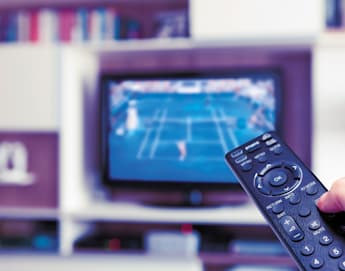Locations
In the ruling of Citadines v MPLC Deutschland GmbH (C‑723/22), the CJEU has issued its latest decision on Article 3(1) of the Copyright Directive (2001/29/EC) about the scope of liability for communicating a copyright work to members of the public.
This arose from a referral from the German court in proceedings between the hotel operator Citadines Betriebs GmbH ("Citadines") and collective management society MPLC Deutschland GmbH ("MPLC").
Background
The case concerns the broadcast of an episode of a television series, the rights in which were held by MPLC. The episode was broadcast by a public television channel but then retransmitted to be viewed by guests on television sets installed by Citadines in the bedrooms and fitness area of its hotel. This retransmission used the hotel's own cable distribution network. Citadines had already entered into licensing agreements for the cable retransmission.
Citadines did not dispute that it was carrying out an act of communication to the public, but maintained that it was entitled to make the free-to-air programmes available to its guests on the basis of the licences it had in place. On the other hand, MPLC argued that the retransmission of the signal by the internal cable distribution network at the hotel was an infringement of the right of communication to the public and not covered by the licences in place.
Although there were various issues around the exact wording of the German national transposition of the Directive and the scope of the licences, the CJEU focussed the analysis on whether the retransmissions of a signal by the hotel's own network to television sets installed by the hotel in rooms or the fitness area constituted a communication to the public.
The court's assessment
The CJEU reviewed a summary of the extensive case law on the communication to the public before applying it to the present facts.
It held that first, the hotel operator carried out an act of communication by intentionally transmitting the works to its clientele by "intentionally distributing a signal by means of television sets which it has installed in its establishment". Secondly, as per the existing case law (Phonographic Performance (Ireland)) (C-162/10)) hotel guests constitute an "indeterminate number" of people as required for the communication to have been made to a "public". Thirdly, the hotel operator had "intervened in full knowledge of the consequences of its actions to give access to that work to its guests", without which they would be "unable to enjoy that work". Fourthly, it was sufficient as an act of communication that guests may access the broadcast and did not matter whether they did in fact turn on the televisions. Fifthly, the court held that the activity was profit-making in nature because the availability of broadcasts "constitutes an additional service which has an influence on the hotel's standing and… on the price of rooms". Finally, the court held that this could not be regarded as the "mere provision of physical facilities", essentially due to the distribution of the signal in addition to the installation of the televisions.
On this basis, the CJEU held that the provision of television sets installed in the rooms or in the fitness area of a hotel, where a signal is also retransmitted to those sets by means of that hotel’s own cable distribution network, constitutes a ‘communication to the public’.
Comment
Although the CJEU was clear in the conclusions it reached in this case, the analysis of the particular detail seems a little thin. For each requirement, there was largely just a couple of lines reiterating the existing legal framework, rather than drilling down into the exact steps and technical processes that were undertaken here.
Given the nature of a referral, the court understandably did not analyse the national laws which seemed to pose a particular challenge on the facts. The court also did not consider the scope of the licences in place which seem to have been the true crux of liability.
This decision therefore does not seem to take the law on communication to the public forward to a great degree. It is nevertheless helpful to consider this technical area as it applies to this scenario and the case shows another example of national courts requiring assistance in this area.
In light of Brexit, this case is not directly binding on the UK courts and in light of the Retained EU Law (Revocation and Reform) Act 2023 coming into force, it will be easier for the lower UK courts to depart from EU law (see our article here - IP and the Retained EU Law (Revocation and Reform) Bill 2022-23). However, this is a highly technical and complex area of law. The volume of cases at EU level shows the difficulty in interpreting these provisions, on which the existing UK law is based. Therefore, should the matter come before the UK courts, they may still find the analysis of the CJEU for these particular facts to be of assistance in their interpretation of the UK laws.

